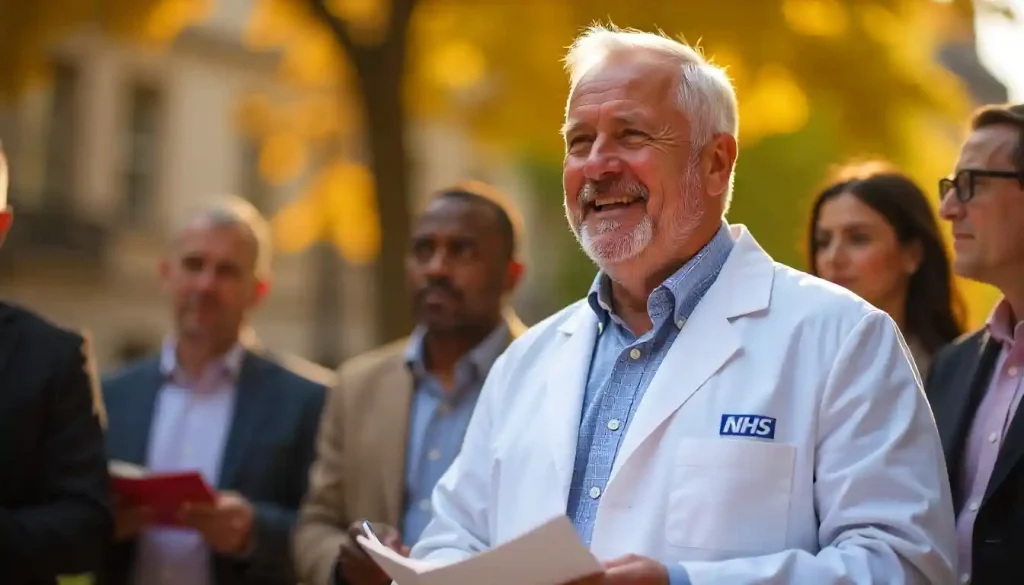5 Incredible Benefits of the NHS’s New Free Chickenpox Vaccine for Children

Chickenpox
A Landmark Shift in Child Health Protection
In a monumental move for public health, the NHS has announced that from January next year, all young children in England, Wales, and Northern Ireland will be offered a free chickenpox vaccine. This decision marks the end of an era where parents had to choose between paying privately for protection—often up to £200—or risking their child catching the potentially severe virus. This proactive strategy by the Department of Health and Social Care is not just about preventing itchy spots; it’s a comprehensive plan designed to safeguard children’s health, support working families, and alleviate significant pressure on the NHS. It represents one of the most significant changes to the childhood vaccination programme in recent years, finally bringing the UK in line with other major countries like the US and Germany.
How the New Chickenpox Vaccination Programme Will Work
The rollout is designed for simplicity and ease of access, integrating seamlessly with existing well-child checkups. The vaccine will be administered in two doses. The first dose will be given at the 12-month appointment, and the second will follow at the 18-month appointment, conveniently alongside the routine MMR vaccine. This co-administration ensures high uptake and reduces the number of separate clinic visits required for parents. Furthermore, recognising the importance of herd immunity, the NHS will also initiate a catch-up campaign for older children who would have missed the vaccine in infancy. This ensures that an entire generation of children will be protected, creating a powerful barrier against the virus’s spread within communities and schools.
Beyond the Itch: The Serious Dangers of Chickenpox
While often dismissed as a common and mild childhood rite of passage, chickenpox can have serious and devastating consequences. For vulnerable groups, the virus is far from trivial. Pregnant women who contract chickenpox face a high risk of developing pneumonia and can pass the infection to their unborn baby, leading to congenital varicella syndrome, which can cause limb abnormalities and neurological damage. Newborns, the elderly, and immunocompromised individuals are also at a dramatically higher risk of severe complications. These can include bacterial infections of the skin, dehydration, pneumonia, inflammation of the brain (encephalitis), and even stroke. Tragically, although rare, chickenpox can be fatal. The introduction of this vaccine is a direct response to these hidden dangers, aiming to eliminate these severe outcomes entirely.

The Economic and Social Impact of a Free Vaccine
The benefits of this programme extend far beyond the hospital. The Department of Health and Social Care estimates that chickenpox is responsible for a staggering £24 million in lost income and productivity each year in the UK. This figure accounts for the countless days parents are forced to take off work to care for a contagious and uncomfortable child, typically for a week or more. By preventing the illness in the first place, the vaccine provides immense economic relief to working families and employers alike. It also reduces the burden on the NHS by minimising GP visits, hospitalisations for complications, and the long-term costs associated with treating severe cases. Health Minister Stephen Kinnock powerfully stated, “We’re giving parents the power to protect their children… This vaccine takes into account the health of children and also provides the necessary support to working families.”
Addressing Vaccine Hesitancy and Building Trust
This landmark announcement comes at a critical time. New figures show that coverage for major childhood vaccinations in England has stagnated at worryingly low levels, failing to meet the 95% World Health Organization target. For the 2024/25 period, only 91.9% of 5-year-olds had received one dose of the MMR vaccine—the lowest coverage since 2010/11. Minister Kinnock acknowledged the government’s concern over this uptake and the rise of vaccine hesitancy post-Covid. He outlined a dual strategy: a positive national advertising campaign emphasising that vaccines are “100% safe” and a firm commitment to countering the rampant misinformation and conspiracy theories on social media. “It’s our job… to win this battle against the conspiracy theorists,” he stated, underscoring the importance of facts and science in public health.
A Brighter, Healthier Future for UK Children
The consensus among medical experts is overwhelmingly positive. Dr. Gayatri Amirthalingam of the UKHSA described vaccinations as a potential “lifesaver,” while Professor Adam Finn, a pediatrician on the JCVI, celebrated the move, predicting that chickenpox will soon be “a thing of the past.” He also addressed the UK’s historical delay, explaining that initial fears about the vaccine causing a rise in shingles cases in adults have been proven unfounded. For parents like Sarah, whose daughters Mia and Willow were hospitalised with severe chickenpox, this vaccine is a crucial step forward. Her emotional testimony—”It was absolutely terrifying”—highlights the very real human suffering this vaccine will prevent. This policy is more than a medical intervention; it is a promise of a healthier, safer childhood for generations to come. Scotland is expected to follow suit, making this a truly UK-wide victory for public health.
Table of Contents
Reference Website:
https://www.bbc.com/news/articles/c860n445vyxo
Our Related News Website:
Sports: Sport Flash
World News: The News Grid
Environment News: Eco Alert
Business News: Biz Trend Now
Daily News: Unbiased Daily
Realm News: Real Time Realm
Retrun to our Homepage





